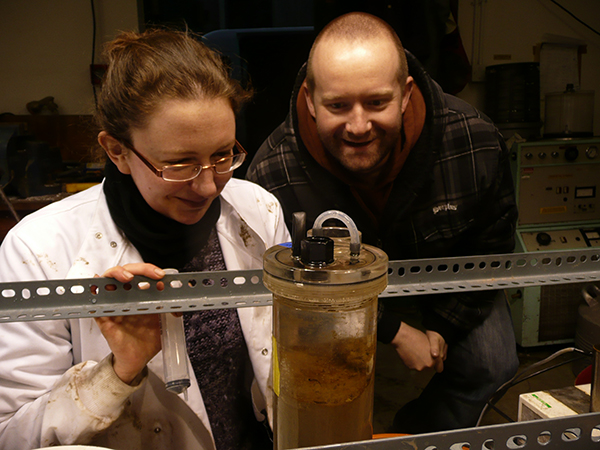The University of Essex is providing a vital role in the CBESS project by characterising the microbes present in 264 areas of salt marsh and mudflat, spread over six field sites in Essex and Morecambe. These microbes are particularly important in these habitats as they play a vital role in many processes such as cleaning the environment and improving plant growth.
After a highly successful winter fieldwork campaign we’ve collected nearly 1,600 sediment samples from which we’re now characterising the communities of three types of micro-organisms: bacteria, archaea and eukaryotes using newly developed, cutting edge DNA based methods. We’ve also been investigating the cycling of nutrients in these areas by collecting sediment from the field and measuring how nutrients and oxygen flow in to or out of it under different light levels. Again, this has been a huge undertaking and involved taking over 1,200 samples during the winter fieldwork campaign.

We’re already well underway with analysis of all samples collected and are currently preparing to repeat our experiments and sampling this summer so we can examine seasonal variation in these systems. One of our aims is to determine the relationship between microbial community composition and the dynamics of nutrient cycling. When this is completed our work will represent the biggest and most thorough study of microbes and nutrient fluxes in salt marshes and mudflats, greatly enhancing our understanding of these important ecosystems.
